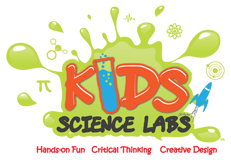Whether its Game of Thrones, Oscar Wilde, or the famous Marvel Superhero Dr. Strange, hearing that "You Lack Imagination" just sounds like one big diss as an adult. Here is some truth. What adults have hidden away and allowed to gather cobwebs, our kids use to solve problems in beautiful ways every day. Our reality is that we simply have been taught that rule based approaches and deep knowledge are the best ways of working out problems. Academic research and functional observation of kids is clear on the subject, that without active use of imagination, creativity, and freeing ourselves from restrictive rule based thinking, we are painfully limiting our problem solving potential. In this regard, we can learn from preschoolers and elementary kids, on how to use our Imagination and Creativity to improve long-term outperformance.
While we are often focused on outcomes (higher grades, test scores, mastery skill), which are important, we sometimes miss the more critical fuel that leads to long-term outperformance, Creativity and Imagination, core skills that kids 0-5 have in abundance. There is a difference between a student who gets an "A" and one who gets a "B" and its not hard work. Of course there are a few people whose brains are just supercharged, but the group is extremely small relative to the "A" students who operate on a different plane of information processing, using abstract thinking, contextual clues, critical reasoning, and creativity, and their beautiful imagination to better understand and relate concepts.
Doctors, Lawyers, Engineers as well as Sandwich Makers, Musicians, and Salesmen most often suffer from the same problem as they often learned in a similarly restrictive knowledge-based environment, where there are certain "right" ways to perform a function or solve a problem. There are rules that must be followed. There are four wheels on a car. There is no way to see a great movie in your home. All the Taxi's are unavailable so I have to wait. This way of thinking, through the lens of pre-existing rules, is just false. We need to learn that sometimes the rules don't apply, especially when solving problems. Just because you know a boundary is there, doesn't mean that it has to be there, and imagination allows us to get round these boundaries. This is especially true in science.

